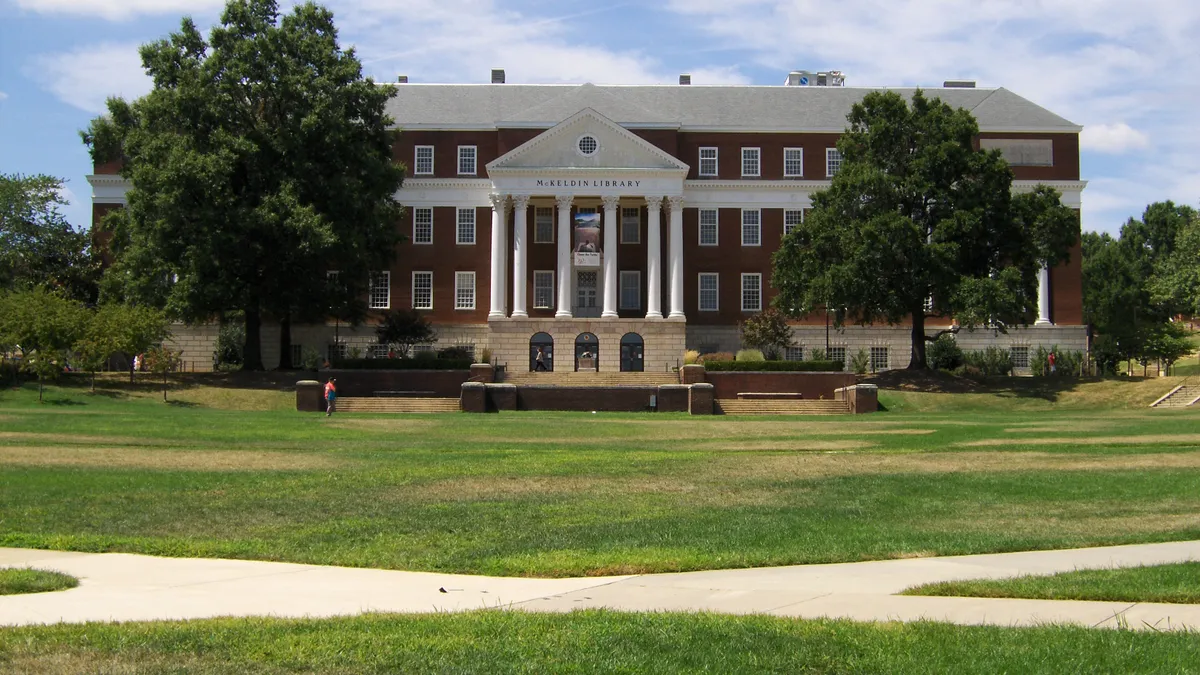Dive Brief:
- The University of Maryland announced this week it is opening an 8,000-square-foot hub that will feature meeting rooms and spaces for collaboration, in Arlington, Virginia's Crystal City neighborhood, home of Amazon's forthcoming second headquarters (HQ2).
- Called the Discovery Center, it intends to be a space for academics, business leaders, students and locals to meet and use. It will host lectures, symposia and other events on subjects such as cybersecurity, machine learning and cloud computing.
- U of Maryland is the latest university to plan new facilities near HQ2 to strengthen its relationship with the e-commerce giant.
Dive Insight:
Amazon's choice of Crystal City as the location for its HQ2 "cements" the region "as one of the great hubs of innovation in the world," Ken Ulman, U of Maryland's chief strategy officer for economic development, told Education Dive in an interview.
The university's main campus is 11 miles from HQ2's site, with each located on opposite sides of Washington, D.C. At the Discovery Center, students will be able to collaborate with the private sector and may eventually take courses, Ulman said.
Amazon estimates its headquarters in Northern Virginia will bring 25,000 mostly tech-focused jobs to the area by 2030. That's spurred several other colleges and universities in the area to plan new facilities and expand programs to support the mega-retailer's needs.
With some financial support from the state, two Virginia universities are building or expanding near Amazon's HQ2.
Virginia Tech is planning a 1-million-square-foot campus for graduate students only two Metro stops from Amazon's HQ2. University officials say the finished campus, which is estimated to cost $1 billion, will enroll around 750 master's students and hundreds of doctoral students and postdoctoral fellows.
George Mason University is expanding its campus in Arlington, Virginia, to 1.2 million square feet from about 700,000 square feet currently. That new space, along with a pledge to hire more faculty and grow its offerings, will enable the university to increase graduate and undergraduate enrollment in its computing programs to 15,000 students.
Ulman doesn't see more universities operating out of Crystal City as competition, however.
"We view it as all hands on deck," he said. "We know that other companies that partner with Amazon or are in similar businesses will also gravitate to this region, so there is going to be a need in the short-term for tens of thousands of skilled employees to support these industries."
The Discovery Center also helps the U of Maryland feed Amazon's hiring pipeline after the university failed to bring HQ2 to its hometown of College Park, Maryland.
"Amazon HQ2 is a regional phenomenon, and we are just a Metro ride away," said university President Wallace Loh in the announcement.











